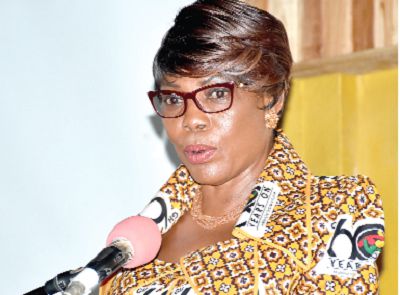
Accra selected for Global Cities Fund for migrants, refugees
The City of Accra has been selected among five recipients of the Global Cities Fund for Migrants and Refugees (GCF), an initiative that responds to the unmet needs of cities to support migrants, refugees and internally displaced people (IDPs).
The fund will be used to study the situation of migrants working in the city’s informal economy and facilitate their access to financial inclusion, health care and child care.
The other beneficiary cities are Arua (Uganda), Beira (Mozambique), Johannesburg (South Africa) and Monrovia (Liberia).
This was announced at the International Migration Review Forum 2022 organised in New York, USA, last Wednesday.
They are to receive a total grant of $200,000 to implement projects that will address the needs of migrants and people affected by the climate crisis.
The selection was made by a committee of subject matter experts and practitioners who reviewed submissions and selected the beneficiary cities based on their anticipated impact, engagement with affected communities and commitment of city leadership.
The fund was launched in 2021 at a UN Climate Change Conference (COP26) by Mayors Migration Council (MMC) and a C40 Cities Climate Leadership Group (C40 Cities).
It was in partnership with the Robert Bosch Stiftung (RBSG) and the Inclusive Climate Action (ICA) Chapter of the GCF, which drives financial and technical resources to African cities.
Importance
The Chief Executive Officer of the Accra Metropolitan Assembly (AMA), Elizabeth Kwatsoe Tawiah Sackey, who spoke at the forum, said the fund would empower the selected cities to better understand the experiences of migrant communities, particularly those in the informal economy who were displaced by climate crisis.
“The GCF will empower us to mould our services and programmes around the needs of migrants, while making our cities more ecologically sustainable,” she said.
According to her, the World Bank had estimated that about 85 million sub-Saharan Africans could migrate by 2050 due to climate crisis, and said it was for that reason African mayors were taking bold action, both locally and internationally, to address the situation.
Action
One of the actions taken by African mayors, Ms Sackey said, was the establishment of the C40-MMC Global mayors task force on climate and migration, aimed at protecting residents against heat, flooding or landslides, as well as welcoming people displaced by climate impact.
“In Accra, 80 per cent of employment is in the informal sector, which includes street vendors, home-based work and waste pickers.
“At the same time, 40 per cent of internal coastal migration in the country is climate related, which is further exposing Accra to pressure from migration and compounding informal sector vulnerabilities, particularly for migrants and refugees who struggle to access basic services such as health care and child care through precarious informal sector work,” she added.
For her part, the Executive Director of the MMC, Vittoria Zanuso, said the council would collectively improve the lives of thousands of migrants and marginalised residents affected by climate crisis and work with them as allies in the green transition

